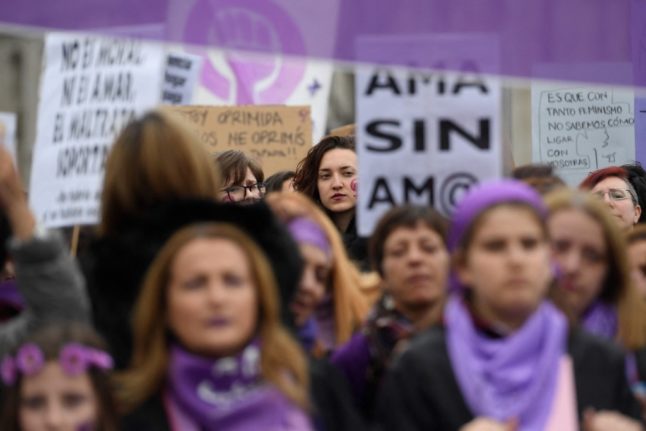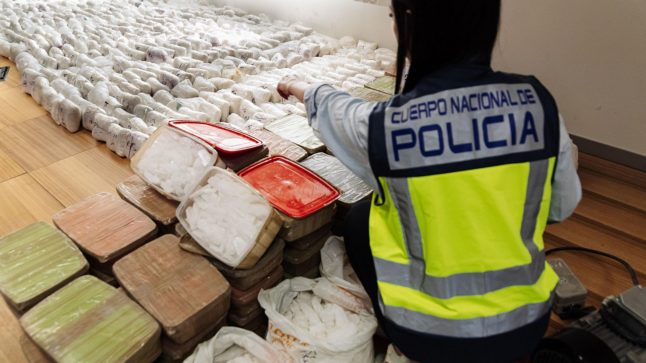Among the victims was a 32-year-old pregnant woman allegedly stabbed to death by her former partner in front of their two teenaged children on Wednesday night in the central town of Escalona.
Police arrested the man shortly after. The woman had been due to give birth within days, according to Spanish media reports.
If her death is confirmed to be at the hands of her former partner, it will bring to 47 the number of women killed due to gender violence this year, and to 1,180 the total since the government started keeping a tally in 2003.
Interior Minister Fernando Grande-Marlaska said the “series of dreadful crimes we have suffered this month” was “deeply frustrating” and should serve as a “wake-up call”.
He urged people to report any suspected incidents of gender violence and said police across the country had been ordered to “step up” their vigilance.
“This is not a private issue as it was understood in the past, we cannot go back to that idea, it is a social tragedy that we have to face as a society,” he told a news conference.
Other suspected victims include a 20-year-old Madrid woman who was stabbed to death Wednesday by her mother’s former partner and a 22-year-old woman who fell from the sixth floor of a flat in Benidorm.
READ ALSO: What to do if you’re in an abusive relationship in Spain
Prime Minister Pedro Sánchez said Spain was “suffering a terrible rebound in cases of gender violence” this month.
“Ending gender violence involves all of us. It is essential to act together, as a society, to stop this scourge,” he added in a tweet.
Spanish politicians have pursued successive programmes to address domestic violence since 1997, when 60-year-old Ana Orantes was beaten, thrown over a balcony and then burned to death by her ex-husband after repeatedly complaining to authorities about his violent behaviour.
Spain’s parliament in 2004 overwhelmingly approved Europe’s first law to specifically crack down on gender-based violence.
The deadliest year on record for gender violence in Spain was 2008 with 76 deaths.
READ ALSO: How interactive play gives teens in Spain insight into gender violence



 Please whitelist us to continue reading.
Please whitelist us to continue reading.
Member comments